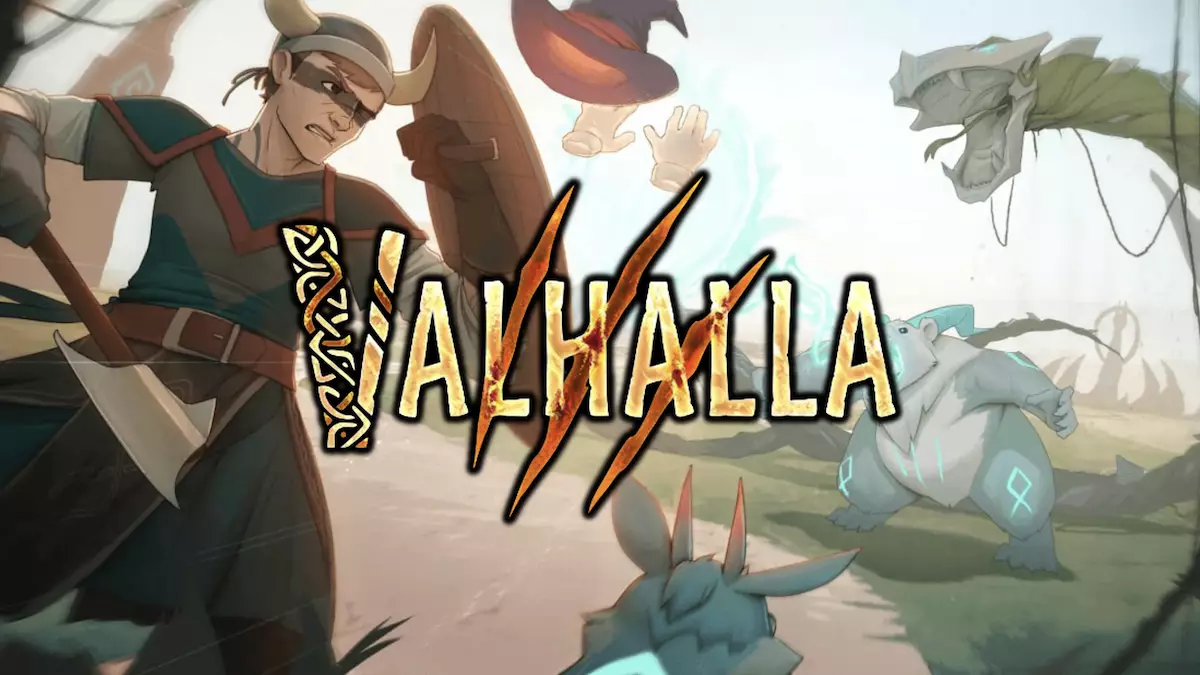Valhalla represents a bold departure from traditional gaming formats, carving its niche in the emerging landscape of Web3 games. This ambitious open-world project, birthed from the creators of Floki Inu, intertwines intricate gameplay with innovative blockchain mechanics. Unlike conventional MMORPGs that often rely on centralized servers and ownership models, Valhalla champions a decentralized economy that empowers players, allowing them not only to explore vast terrains but also to engage in strategic combat, all while earning cryptocurrency. The game’s design is a testament to a new era of digital interaction, where players are not merely participants but integral stakeholders in their gaming environment.
Set against the backdrop of Norse mythology, Valhalla invites players to embody the roles of Viking warriors navigating a richly detailed world. The game cleverly integrates an array of mythical creatures known as Veras, which players can capture, train, and deploy in combat scenarios. The turn-based combat system promotes tactical decision-making, forcing players to think critically about their moves. This strategic element transforms combat into an engaging puzzle that tests a player’s skill and foresight, a stark contrast to the often frenetic pace of typical action-oriented MMORPGs.
Valhalla’s design doesn’t stop at combat; it further entices players into a world brimming with quests, treasures, and communal hubs. Active towns serve as bustling centers for trade and interaction, exemplifying how player engagement can extend beyond mere gameplay into opportunities for social connections within the digital realm.
At the heart of Valhalla’s design is its play-to-earn model, which positions players as active participants in the economy. By engaging in battles, completing quests, and farming resources, players accumulate valuable assets such as Runix or Onyx, forming a direct link between their in-game activities and real-world value. The innovative twist lies in the unique NFTs represented by Veras, which serve not only as collectibles but also as vital tools in combat. As players trade and develop these assets, their value can significantly increase, especially as the community and marketplace surrounding Valhalla grow.
Player earnings are influenced by several factors, including task difficulty, the power of their Veras, and other game mechanics. This intricate balance requires players to strategize, fostering a deep, immersive gaming experience that rewards skill and commitment. Furthermore, Valhalla enhances engagement with competitive events, such as tournaments where participants can achieve rewarding milestones in the form of FLOKI tokens and other in-game assets.
What sets Valhalla distinctly apart from conventional MMORPGs is its foundational reliance on blockchain technology. Through the use of NFTs, players attain true ownership of their in-game assets, a radical shift in how value is perceived in gaming. This decentralized economy not only ensures transparency in transactions but also shields players from the centralized control that has characterized traditional gaming landscapes. Trust is implicit in design; players can engage in transactions with confidence, knowing their assets are secured by blockchain protocols rather than relying on unilateral governance.
To further solidify its place within the gaming arena, Valhalla has initiated strategic partnerships with entities like Alliance, a prominent esports organization. This collaboration paves the way for broader reach and increased visibility, particularly among competitive gamers and esports enthusiasts who are traditionally wary of entering the Web3 space. As Valhalla continues to mature during its Testnet phase, the game seeks player feedback to fine-tune its mechanics and overall user experience.
Despite the limitations inherent within the Testnet, this phase is crucial for both developers and players, as it allows for a comprehensive examination of game functionalities. Players who embrace the opportunity to engage during this period are not just passive consumers; they are vital contributors to the game’s evolution.
For those looking to embark on their Viking journey, the process is accessible. Enthusiasts need only to install a Web3 wallet such as Metamask, create a wallet, add Valhalla’s opBNB Testnet, and connect to the platform. This setup ensures that players secure their progress across devices while engaging with the game.
Valhalla stands at the forefront of a revolutionary shift in the gaming industry. By harmonizing the allure of MMORPG gameplay with the financial incentives offered by a play-to-earn model, it crafts a more immersive and rewarding experience for players. As the game evolves within the realms of Web3, it exemplifies how the future of gaming is no longer about mere entertainment; it is about empowerment, ownership, and community engagement. Valhalla is not just a game; it is a gateway to a new paradigm in digital interaction, one that places players at the helm of their gaming destinies.


Leave a Reply